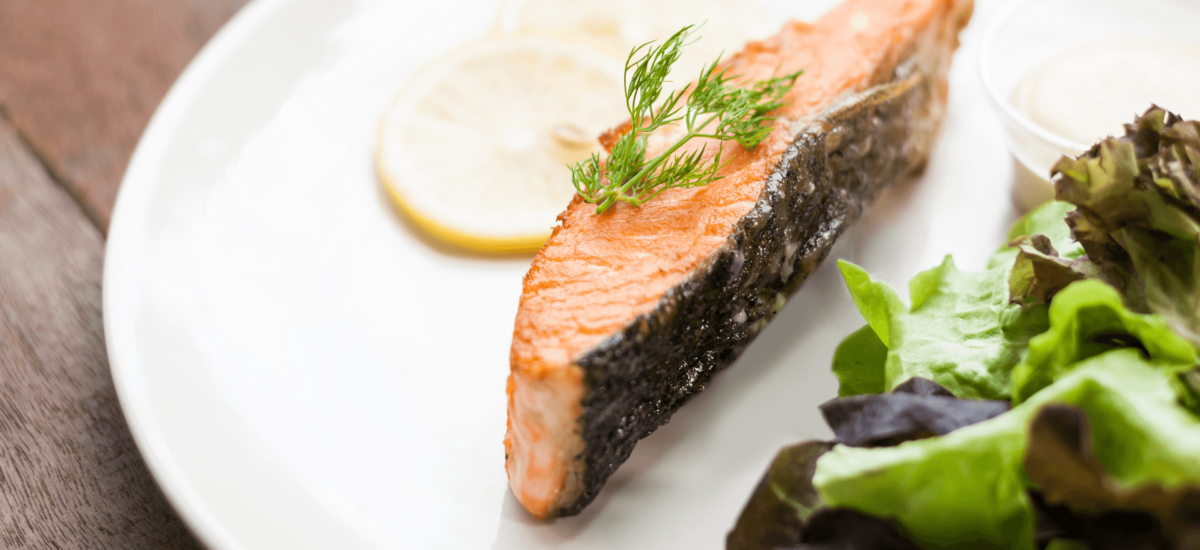What is Protein and why is it important?| Health benefits of Protein for bone health| Protein-rich foods for building healthy bones| Takeaways
When you read up on bone health, you’ll hear a lot about getting in essential minerals like calcium and magnesium, but a nutrient that often falls through the cracks when discussing optimal bone performance is protein.
Protein not only acts as direct support for bone structure, but it’s also crucial for the absorption of calcium. In fact, research shows that adequate protein intake is vital for bone mineral density, and when protein intake is too low, calcium is rendered useless when it comes to strengthening bones[16].
In this article, we’ll highlight why protein is so vital for bone health and some protein rich foods to maximize your protein intake.
What Is Protein And Why Is It Important?
Protein is crucial for the growth, maintenance, and repair of your body. In fact, amino acids, which are the building blocks of protein, are also known as the “building blocks of life.”
Why?
Because protein makes up an essential component of every cell in your body, while also playing a role in the structure and function of cartilage, muscles, bones, skin, and even your hair and nails [1].
Along with growth, maintenance, and repair, protein is also involved in several other biological processes, including [2]:
- Biochemical reactions
- Signaling messages between cells
- Maintaining your body’s pH
- Balancing the fluids in your body
- Supports immune health
- And more
As one of the three macronutrients (along with carbohydrates and fat), protein plays a significant role in your diet. As you might imagine, getting enough of this nutrient is important for overall health due to the above-mentioned benefits – along with its vital role in bone health.
It’s also important to note that there are nine amino acids that must be consumed in the diet because your body is unable to synthesize them on its own. These are referred to as the essential amino acids.

Health Benefits Of Protein For Bone Health
Protein makes up roughly 50% of the volume of bone and about one-third of its mass. This is due to protein’s involvement in the matrix of your bone tissue, which provides your bones with both strength and function [3][4].
However, aside from its structural integration into your bones, protein also plays several other functions contributing to bone health.
For example, research shows that getting adequate dietary protein is vital for the proper function of the hormone IGF-1. IGF-1, also known as insulin-like growth factor 1, is involved in both the growth of your bones as well as your bone density [5].
Dietary protein is also involved in calcium absorption in your gut. Calcium is well-known for its importance in bone health, especially when it comes to bone mineral density [6].
And finally, adequate protein intake is vital for the maintenance of muscle mass. The health of your bones is directly related to the amount of muscle you have on your body due to the mechanical force that muscle tissue puts on the bone. The more force, the more the bone is stimulated to strengthen itself [7].
Furthermore, since blood flows to the limbs in proportion to muscle mass, it’s believed that more muscle might improve bone strength due to a higher nutrient supply to the area [8].
Truly, no matter which way you look at it, it’s clear that dietary protein is an essential component of healthy bones.
Protein-Rich Foods For Building Healthy Bones
1. Eggs
Eggs are known as the “perfect protein” because they not only contain a significant amount of protein (about 7 grams per egg), but they also include all of the essential amino acids in amounts that are ideal for your body to utilize.

In fact, there is a term known as “biological value,” which indicates the quality of protein in specific foods. Protein quality ultimately comes down to the amount of protein and the specific amino acids contained in the protein. When researchers assess the protein quality in food, they often use eggs as the comparison because the biological value of eggs is 100 – a perfect score [9].
2. Beef and Chicken
This category could really include all meat products, as any animal protein will come naturally packed with all of the essential amino acids (although not necessarily in the ideal proportions like our friend the egg).

What makes animal protein so beneficial is its bioavailability. Bioavailability is a term that’s used to describe how readily a nutrient is digested, absorbed, and utilized by the body.
Unlike protein that comes from plants, which is often encased in nutrients that might diminish amino acid absorption, animal protein is readily absorbed and assimilated [10].
Tip: bone-in meat tends to provide more micronutrients, so go for items like chicken wings or bone-in steak.
3. Fish
Fish is not only a fantastic source of protein (much like meat), but it also comes with vitamin D – an essential nutrient for bone health. Specifically, vitamin D plays an important role in the absorption of calcium, which, as you know, is vital for bone mineral density.

Fish is also one of the best sources of omega-3 fatty acids out there. Omega-3s come with a host of health benefits, and among them is improved bone quality. Specifically, research shows that omega-3s can help to prevent bone decay and support bone mineralization. What’s more, it appears that omega-3s may interfere with pathological calcification in areas of the body, like the heart, and within cancer cells.
In other words, omega-3s help to direct calcium where it belongs (your bones) and away from potentially dangerous deposition sites [15].
The best types of fish for getting some extra vitamin D and omega-3s in your diet are fatty fish like salmon and tuna [11].
4. Cottage Cheese
Dairy products are notoriously high in calcium, but cottage cheese also packs a fantastic protein punch with 25 grams of protein per 1 cup serving.

Cottage cheese also makes a great base to throw other nutrient-rich foods on, like pumpkin seeds and cashews – both of which are high in magnesium and zinc (two nutrients that support bone health) [12].
5. Lentils
For all the vegans out there, don’t despair – we have a terrific protein source for you as well.
Lentils are rich in a number of bone-healthy nutrients, including magnesium, phosphorus, and zinc. They also happen to be one of the best vegan protein sources, with about 24 grams of protein per ½ cup [14].

The one drawback to vegan protein sources is that they tend to have “anti-nutrient” compounds such as phytates, making it harder for your body to digest and absorb some minerals. When it comes to legumes, however, lentils tend to have lower amounts of anti-nutrients, making them an excellent choice for non-meat eaters.
With that being said, it’s always a good practice to either buy sprouted lentils or soak your lentils overnight – both methods will reduce the Phytate content and enhance your body’s ability to absorb those essential minerals your bones are hungry for.
6. Type 1 Collagen
This list would not be complete without mentioning collagen, specifically type 1 collagen.
Remember how protein makes up about 50% of your bone matrix? Well, the vast majority of that comes from collagen. It also plays a crucial role in the integrity of your connective tissues, which directly impacts bone health and function.
Furthermore, research shows that taking collagen supplements can significantly improve bone mineral density (BMD) in postmenopausal women. In one study, participants showed a 7.7% increase in BMD in the neck and a 4.2% increase in the spine after 12 months of collagen supplementation [17].

Although you may not see collagen sitting in your grocer’s refrigerator, there are plenty of sources of collagen out there these days. If you want to go the whole foods route, the best source of collagen is bone broth.
However, today many companies are also offering collagen supplements in either pills, powders, or liquid forms.
The Takeaway
Consuming a well-balanced, nutrient-rich, whole food diet should be the overall goal when it comes to bone health. However, the role of protein in the health and maintenance of your bones can’t be understated.
This nutrient not only provides structure to your bones, but it’s involved in several biological processes that are vital for bone growth, development, and repair.
Ensuring you consume adequate protein rich foods means prioritizing this nutrient in each of your meals. That means you may have to skip that morning muffin in favor of a protein-rich omelet. It’s typically easier to add protein to lunch or dinner, but consistently getting enough throughout the day will yield much better results.
The most important thing to keep in mind is not so much the type of protein you consume, but rather that you just make sure to consume it at all. Put another way, if none of the items on this list appeal to you, that’s no problem – just be sure to find protein-rich foods that excite you and make sure to incorporate them into your diet frequently.
The best type of protein is the one you’ll eat.
References
- https://medlineplus.gov/ency/article/002467.htm#:~:text=Every%20cell%20in%20the%20human,%2C%20teens%2C%20and%20pregnant%20women
- https://medlineplus.gov/genetics/understanding/howgeneswork/protein/
- https://books.google.com/books?hl=en&lr=&id=9jSLEkFaYqYC&oi=fnd&pg=PP1&ots=wGoxS5cGvD&sig=XwipcBBXebtk0WkoWTeI1tCsb5w#v=onepage&q&f=false
- Heaney, Robert P., and Donald K. Layman. “Amount and type of protein influences bone health.” The American journal of clinical nutrition 87.5 (2008): 1567S-1570S.
- Ekbote, Veena H., et al. “Relationship of insulin-like growth factor 1 and bone parameters in 7–15 years old apparently, healthy Indian children.” Indian Journal of Endocrinology and Metabolism 19.6 (2015): 770.
- Mangano, Kelsey M., Shivani Sahni, and Jane E. Kerstetter. “Dietary protein is beneficial to bone health under conditions of adequate calcium intake: an update on clinical research.” Current opinion in clinical nutrition and metabolic care 17.1 (2014): 69.
- Lang, Thomas F. “The bone-muscle relationship in men and women.” Journal of osteoporosis 2011 (2011).
- Kaji, Hiroshi. “Interaction between muscle and bone.” Journal of bone metabolism 21.1 (2014): 29-40.
- Hoffman, Jay R., and Michael J. Falvo. “Protein–which is best?.” Journal of sports science & medicine 3.3 (2004): 118.
- Berrazaga, Insaf, et al. “The role of the anabolic properties of plant-versus animal-based protein sources in supporting muscle mass maintenance: a critical review.” Nutrients 11.8 (2019): 1825.
- Lu, Z., et al. “An evaluation of the vitamin D3 content in fish: Is the vitamin D content adequate to satisfy the dietary requirement for vitamin D?.” The Journal of steroid biochemistry and molecular biology 103.3-5 (2007): 642-644.
- O’Connor, J. Patrick, et al. “Zinc as a therapeutic agent in bone regeneration.” Materials 13.10 (2020): 2211.
- https://ods.od.nih.gov/factsheets/Magnesium-HealthProfessional/
- https://fdc.nal.usda.gov/fdc-app.html#/food-details/172420/nutrients
- Sharma, Tanu, and Chandi C. Mandal. “Omega‐3 fatty acids in pathological calcification and bone health.” Journal of Food Biochemistry 44.8 (2020): e13333.
- Heaney, Robert P. “Effects of protein on the calcium economy.” International Congress Series. Vol. 1297. Elsevier, 2007.
- König, Daniel, et al. “Specific collagen peptides improve bone mineral density and bone markers in postmenopausal women—a randomized controlled study.” Nutrients 10.1 (2018): 97.





Alicia Forsman
August 26, 2022 , 12:02 pmThank you!